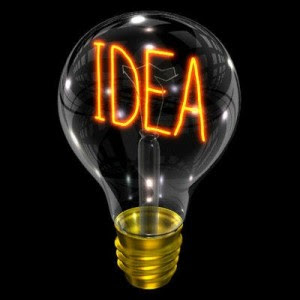 I’m in the second year of a Creative Writing MFA program, which means that I’ve gained just enough confidence to be disagreeable. Last year I nodded my head in agreement with everyone, convinced that if something didn’t sound right, it was just because I didn’t understand it well enough. Now I find myself disagreeing with everyone– my professors, my advisor, even the authors of the textbooks we read.
I’m in the second year of a Creative Writing MFA program, which means that I’ve gained just enough confidence to be disagreeable. Last year I nodded my head in agreement with everyone, convinced that if something didn’t sound right, it was just because I didn’t understand it well enough. Now I find myself disagreeing with everyone– my professors, my advisor, even the authors of the textbooks we read.
In my fiction writing class this semester, we’ve been reading a book called Alone With All That Could Happen: Rethinking the Conventional Wisdom About the Craft of Fiction Writing by David Jauss (yes, that’s a very long title). In general, I agree with a lot of the things Jauss decries in his book (writing fiction in the present tense has its limitations, writing what you know can make the writing process more about record keeping than discovery, and so on). But then, right there in Chapter Five, he launched an offensive on my personal favorite– the epiphany.
Jauss starts by complaining that in his thirty-odd years of teaching and editing, he’s read thousands of short stories, and “would conservatively estimate that between a fourth and a third of them featured as their climax that blast-of-trumpets/choir-of-angels moment of sudden insight we call an epiphany.” He discusses stories where epiphanies don’t work (James Joyce’s “Araby,” Flannery O’Connor’s “A Good Man is Hard to Find”) and cautions fiction writers to avoid an overreliance on the lightbulb going off in the character’s head.
Maybe it’s because I grew up addicted to mysteries and cut my writer’s teeth on writing essays, but I sort of thought that writing was about discovery, about sharing what you’d learned. In some ways, the hard things of life we’ve all gone through gain a sense of sanctification if we’ve learned something from them and can share what we’ve learned with others. The very first piece I ever had published included an honest-to-goodness epiphany where I looked in the mirror and heard a voice in my head that told me exactly the opposite of something I wanted to hear, and since then I’ve relied on the epiphany frequently, in fiction and non-fiction. My characters suddenly decide they have to get engaged right now. They figure out who the bad guy is while looking out at ocean waves. They’re like little prophets walking around in my mind, waiting for inspiration to come to them.
What about you– do you like reading about epiphanies? Do you write them? Do you think it’s lazy when others do? Or have you gone merrily on your way like I have for my entire life until last week not thinking much about it?
Related posts:
- Announcing Segullah’s New Short Short Fiction Contest
- Book Review, ‘Bound on Earth’
- I’ve Never Met a Vampire, But I Did Meet a Bully
Continue reading at the original source →



